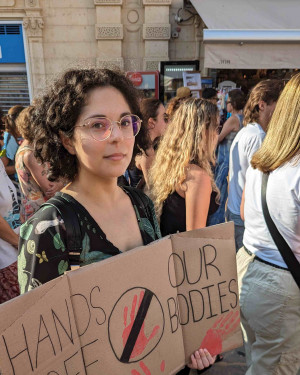Mental Healthcare
Mental Health is still a fairly taboo subject in Malta and is not treated as importantly as physical healthcare. This must change.
Mental Health First Aid
Work toward widespread adoption of Mental Health First Aid accreditation among the following professions (among others) in the public sector;
Educators
Police
Nurses
Firefighters
Human Resource
Encourage Mental Health First Aid accreditation within the private sector.
Facilitate the creation of more training centres for Mental Health First Aid.
National Framework
Implement and focus on community-based care, which could be split into three parts:
Getting patients the medical and psychological care that they need.
Medical and psychological care, any patient or person struggling with mental health issues or illness and undergoing treatment should be given focus on strengthening certain life skills to avoid relapses or reliance on medication and clinical care.
A mix of preventive and rehabilitative care (involving the work of other departments such as social workers, employers, etc. to ensure the underlying issues are tackled).
Ensure the mental health framework focuses on both prevention of mental health difficulties, and empowerment for those who are already struggling – access to basic needs and care must be guaranteed.
Pair the increase of services with comprehensive research into the root causes of mental health struggles and their socioeconomic effects – e.g. financial difficulties, social isolation, discrimination, long-term stress, unemployment etc.
Accessibility
A full Psychiatric Wing, with complete psychiatry and psychology services, must be made available and accessible at Mater Dei.
Also set up an emergency psychiatric unit at Mater Dei hospital, ensuring that any person going through a mental health crisis has access to any and all of the specialists/services they need - including, but not limited to, social workers, psychologists, nurses, and/or psychiatrists.
Psychiatric/psychological services should also be available through local clinics to whatever extent possible.
Psychiatrists and psychologists could go on rotation to local clinics, depending on their and nearby localities.
Train GPs to pick up physiological symptoms of mental illness or distress, and make the necessary referrals to mental health specialists where necessary.
Remodel Mount Carmel Hospital shifting focus to patients that require long-term care (with possible renaming to signify the change).
A communication system would be established between Mount Carmel and the smaller clinics/care centres.
Part of Mount Carmel Hospital would be renovated into a community and cultural centre, which focuses on rehabilitation, community participation, and acquiring new coping skills (arts, sports, etc.) for those who do not work or are still in recovery but no longer require intensive care (from Mount Carmel and smaller clinics).
This centre can require both internal and external community focus, with collaborations from other NGOs with leaflets, demonstrations, etc., to assist community outreach through a safe environment.
Develop 4 smaller peer-support and community-care clinics to be set up across the island - one in the North, one in the Centre, and one in the South; as well as one in Gozo.
Implement collaborative management with local NGOs.
Focus more on peer support and community-care, rather than just medical diagnosis, providing a multidisciplinary approach to patient recovery – however, the professionals can refer patients to medical care if required.
Coordination with rehab centres in Malta and Gozo should also be implemented, empowering recovering substance abuse patients to receive mental health support if needed.
These clinics could also form as bases for multidisciplinary teams, which focus on 24/7 responsive care and tailoring available mental health services to their community’s specific needs.
More care support for families and carers, as well as the implementation of home visits and, stays in cooperation with doctors and carers of patients.
Ensure all third-country nationals and EU citizens are informed of mental healthcare services in Malta
Provide information through Identity Malta.
Increase the accessibility and availability of public mental healthcare facilities by working towards expanding the number of localities providing services to eliminate structural barriers (transport).
Conduct a mass media campaign to inform on the effectiveness of mental healthcare.
Increase the capacity of services such as Kellimni to increase accessibility to mental healthcare and are integrated within the public mental health care system.
Increase the quantity and decentralisation of public mental healthcare facilities targeted at youths
Medication
Ensure that ALL psychiatric medicine is made available through the Pharmacy of Your Choice scheme, inclusive of any importation changes or updates.
The Ministry of Health should collaborate with importers to ensure that the right medicines are being imported, to ensure consistent and adequate medical care for carers and patients.
If any changes to the importation of these medicines have been or need to be made, a communication system should be in place with the corresponding mental health and psychiatric officials, to coordinate real-time support for high-risk or sensitive patients.
Schools
Increase education of the effects and sources of mental health difficulties and illnesses to be implemented across all schools.
May be integrated into the PSCD curriculum.
Promote available mental health services.
Ensure a counsellor/counselling team is available that focuses on the mental health of the students and acts as a bridge between the students and the administration.
Teachers and students should be empowered to speak up in cases of classroom discrimination and bullying, through seminar training, and report to the school counsellor and counselling team.
Workplace
Workplaces in both the public and private sectors should be supported and encouraged to collaborate with mental health professionals and/or NGOs to provide seminars, training in conflict resolution and work-life balance, etc.
Unions, councils, and employers’ associations should provide members with information on counselling and support services in times of emotional distress.



